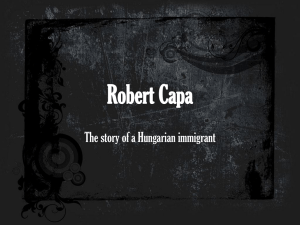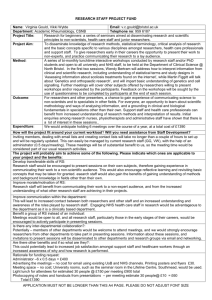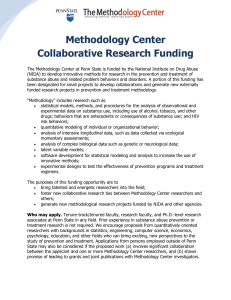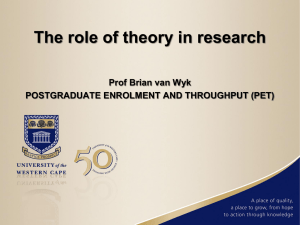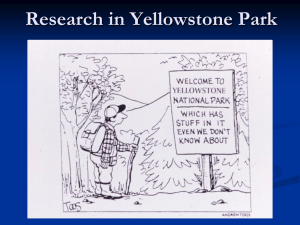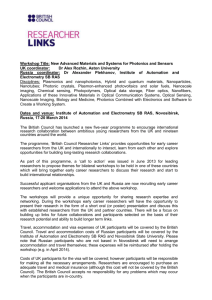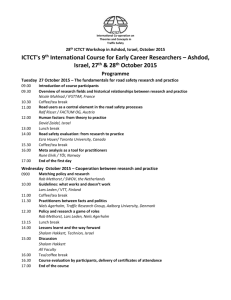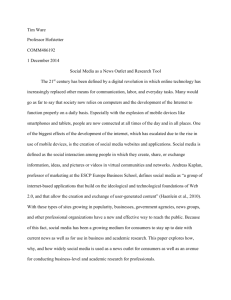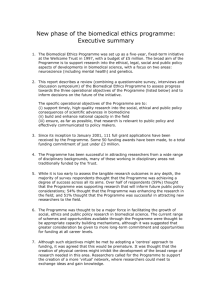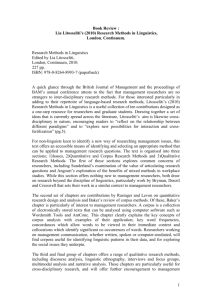Title of the Best Practice
advertisement
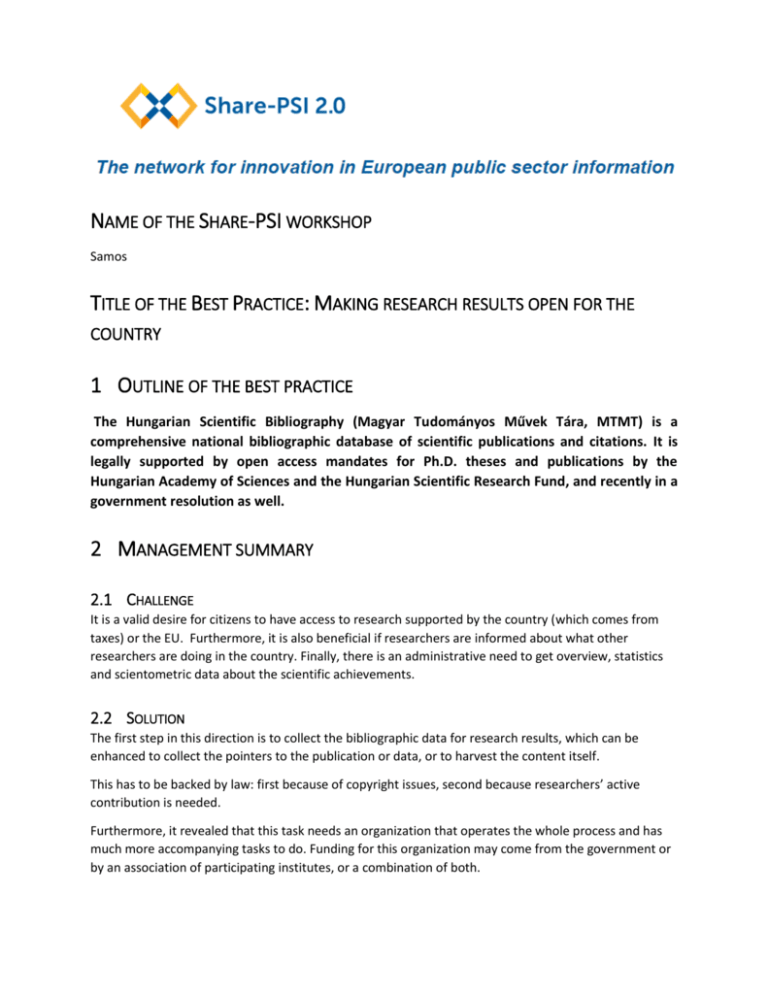
NAME OF THE SHARE-PSI WORKSHOP Samos TITLE OF THE BEST PRACTICE: MAKING RESEARCH RESULTS OPEN FOR THE COUNTRY 1 OUTLINE OF THE BEST PRACTICE The Hungarian Scientific Bibliography (Magyar Tudományos Művek Tára, MTMT) is a comprehensive national bibliographic database of scientific publications and citations. It is legally supported by open access mandates for Ph.D. theses and publications by the Hungarian Academy of Sciences and the Hungarian Scientific Research Fund, and recently in a government resolution as well. 2 MANAGEMENT SUMMARY 2.1 CHALLENGE It is a valid desire for citizens to have access to research supported by the country (which comes from taxes) or the EU. Furthermore, it is also beneficial if researchers are informed about what other researchers are doing in the country. Finally, there is an administrative need to get overview, statistics and scientometric data about the scientific achievements. 2.2 SOLUTION The first step in this direction is to collect the bibliographic data for research results, which can be enhanced to collect the pointers to the publication or data, or to harvest the content itself. This has to be backed by law: first because of copyright issues, second because researchers’ active contribution is needed. Furthermore, it revealed that this task needs an organization that operates the whole process and has much more accompanying tasks to do. Funding for this organization may come from the government or by an association of participating institutes, or a combination of both. 3 BEST PRACTICE IDENTIFICATION 3.1 WHY IS THIS A BEST PRACTICE? WHAT'S THE IMPACT OF THE BEST PRACTICE? The scientific achievement becomes discoverable and measurable, which helps researchers in cooperation and improvement as well as funders to get statistics and overview. It can also be used to assess individuals in case of assigning grants and degrees. 3.2 LINK TO THE PSI DIRECTIVE (Please use one or more of the categories listed on the last page of this document, as many as relevant) - Policies and legislation (legal requirements, licenses etc..) / Licensing of information/data and metadata Dataset criteria and priorities and value and scope w.r.t. datasets Organisational structures and skills Data quality issues and solutions / Quality assurance, feedback channels and evaluation Data discoverability 3.3 WHY IS THERE A NEED FOR THIS BEST PRACTICE? It is strange that a researcher needs to pay for reading a paper written by a colleague in the same town or country, while the paper is supported by a national or EU fund, or a state university. It is also unpractical that universities have different rules to calculate scientific achievements, and that these calculations cannot be checked. By using MTMT for example, each researcher has a general table for results, and he/she can select additional, domain-specific summary table as well. Furthermore, the contents of these tables can be validated. Decision makers need validated statistics of scientific achievements, on several levels, at least to get an overview. On state level, the overview of universities, on university level the overview of faculties and departments can be useful. 4 WHAT DO YOU NEED FOR THIS BEST PRACTICE? The collection of scientific data needs an organization first. It has to run the IT background, help and support researchers, coordinate improvements. The service needs legal background as well. For example, the organization can help to resolve copyright issues with publishers. But on the other side, researchers has to be influenced to input their data, which can be an implicit regulation or incentive for getting funds, or a direct regulation for filling in their data in given periods. The Hungarian organization has local administrators in each participating institute, providing quick, local help to colleagues. Maintaining such a network of administrators seems beneficial for the whole process. Education is also required in this direction. Now, periodically, researchers need to be told why this is necessary, and how they can use the service. It could also be a part of university education, where students get used to terms and problems with copyright, open data, raw data, etc. as early as possible. 5 APPLICABILITY BY OTHER MEMBER STATES? There are similar attempts in other countries, for example in the Netherlands (NARCIS) and in Sweden. Interestingly, Brasil has a similar system since the 90s. This shows there is a valid need for similar solutions, and the national solutions can later merge their data into a European level service. I think a national approach is needed as a starting point as there are significant differences in legislation and scientific evaluation by country. 6 CONTACT INFO - RECORD OF THE PERSON TO BE CONTACTED FOR ADDITIONAL INFORMATION OR ADVICE. Andras Micsik, http://dsd.sztaki.hu/micsik

